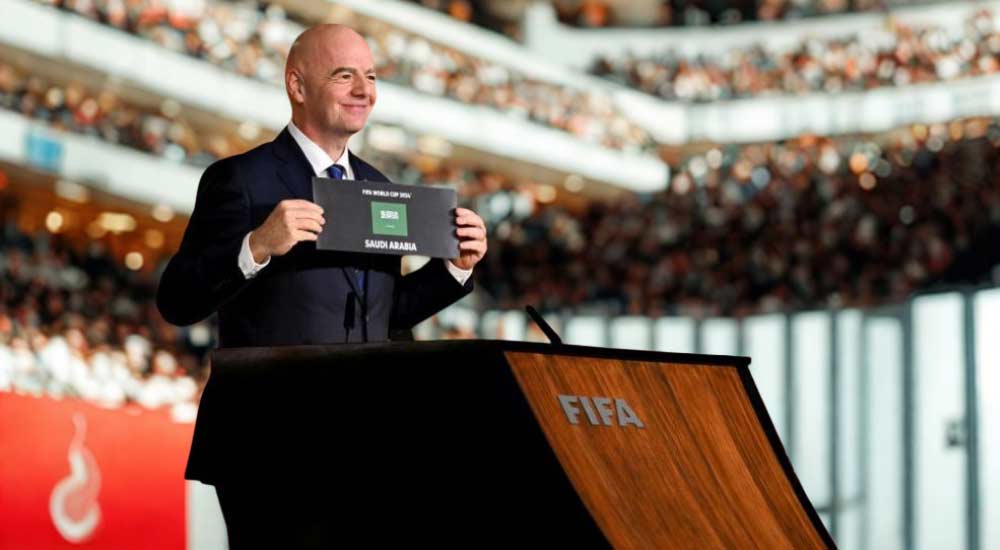FIFA’s decision to grant Saudi Arabia the rights to host the 2034 Men’s World Cup marks a significant and controversial moment in the history of football. This move, which comes amidst ongoing scrutiny of Saudi Arabia’s human rights record and environmental challenges, has sparked widespread debate. While the kingdom has aggressively pursued a role as a global hub for sports, questions remain about whether this event will truly catalyze social reform or merely serve as a means to improve its international reputation.
Saudi Arabia’s bid for the 2034 World Cup was effectively unopposed after Australia, the only other contender, withdrew its candidacy. Critics argue that FIFA’s expedited and opaque bidding process left little room for genuine competition. The organization’s rotation policy, which restricts hosting eligibility to specific continents, played a crucial role in narrowing the field. Following the allocation of the 2030 World Cup to Spain, Portugal, and Morocco, bids for 2034 were limited to Asia and Oceania. This provided Saudi Arabia with a seemingly clear path to victory, reinforced by its strong ties to FIFA under President Gianni Infantino. Saudi Arabia has previously hosted FIFA events, such as the 2023 Club World Cup, and has lucrative sponsorship arrangements with entities like Aramco, a state-owned oil giant.
Despite the smoothness of the bidding process, concerns about the decision are rife. Norway’s football federation has openly criticized the process, citing its lack of transparency and potential to undermine FIFA’s governance reforms. Human rights organizations have raised alarms about Saudi Arabia’s record, particularly regarding the treatment of migrant workers and the potential for exploitation during the massive infrastructure projects required to host the event. A recent independent report on the country’s labor practices was dismissed by critics for failing to address serious allegations, further fueling calls for FIFA to reconsider its stance. Amnesty International and other advocacy groups have warned of dire consequences for human rights, environmental protection, and local communities if the tournament proceeds as planned.
Nonetheless, the Saudi government has framed the World Cup as a historic opportunity, promising state-of-the-art facilities across five cities, including Neom, a futuristic urban development still under construction. FIFA’s evaluation report has praised the bid, awarding it a high score and describing the proposed infrastructure as impressive. However, logistical challenges such as extreme heat during the summer and the timing of Ramadan have led to speculation that the tournament might take place in January instead of the traditional mid-year or winter slots. This would likely create significant disruption for domestic leagues and European club competitions, which are already grappling with packed schedules due to the expanded 48-team format of the World Cup.
Saudi Arabia’s hosting of the World Cup underscores the growing influence it wields in global sports. Over the past few years, the kingdom has invested billions of dollars in a variety of events, including Formula 1, golf, boxing, and tennis, and it has even created the breakaway LIV Golf series. The Public Investment Fund has taken control of several Saudi Pro League clubs and purchased Newcastle United, signaling the government’s ambition to make the nation a sporting powerhouse. For the kingdom, hosting the World Cup represents not only a culmination of these efforts but also a stepping stone toward potentially securing an Olympic bid.
The broader implications of Saudi Arabia’s growing influence in sports are complex. Critics argue that this investment is a form of “sportswashing,” aimed at diverting attention from domestic and international concerns such as human rights abuses. On the other hand, proponents believe that such high-profile events could serve as a platform for gradual societal changes and economic diversification under Saudi Arabia’s Vision 2030 strategy.




